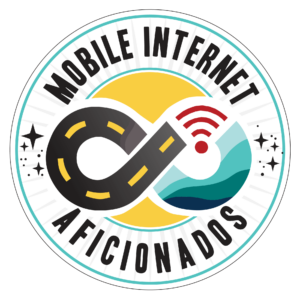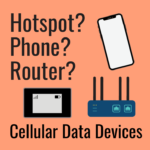The FCC isn't the only federal agency making headlines fighting for mobile consumer rights this week.
The Federal Trade Commission announced this week that it has reached a $40 million settlement with TracFone, the parent company of popular prepaid providers Straight Talk, Net10, Simple Mobile, and Telcel America.
The crime - deceptively offering "unlimited" data plans that were anything but.
From the FTC complaint:
Despite ads that emphasized the promise of unlimited data, the company behind these brands — TracFone Wireless — set data limits that customers didn’t know about. When customers reached these limits, TracFone slowed their data speed or cut off their data service entirely. In some cases, TracFone terminated all services to the phone. And it didn’t take much to reach the data limit. TracFone generally slowed data service when a customer used one to three gigabytes, and suspended data service at four to five gigabytes.
It takes some pretty creative fine print to define 5GB as "unlimited", and clearly the FTC felt that consumers were being deceived:
“The issue here is simple: When you promise consumers ‘unlimited,’ that means unlimited!” - Jessica Rich, director of the FTC’s Bureau of Consumer Protection
News site Re/code reports that when asked for more details during an interview, Director Rich explained that throttling is fine. But deception is not:
“This case is about false advertising. It’s not about throttling. We’re not challenging throttling in and of itself. If it’s clearly disclosed, if a company advertises unlimited, but very clearly discloses their practices with regard to throttling we would not challenge that action.”
If you were a customer who had one of these unlimited plans before January 1st 2015 - you may be entitled to a substantial refund. You can find instructions for claiming your share of the $40 million settlement on the FTC's website here.
 The FTC's similar case against AT&T remains pending, but considering that TracFone was willing to settle that doesn't bode well for AT&T's recent motion that the FTC has no authority to get involved.
The FTC's similar case against AT&T remains pending, but considering that TracFone was willing to settle that doesn't bode well for AT&T's recent motion that the FTC has no authority to get involved.
The FTC is talking tough, with this message for other providers:
What can other companies take from the TracFone settlement?
Mobile products and services may be new(ish), but there’s nothing new about the truth-in-advertising principles that apply. And one of those central tenets is that the FTC looks at representations from the consumer’s perspective. That’s why – to use an obvious example – it’s unwise to make the express claim that a service is unlimited if what you really mean by “unlimited” is, well, “limited.”
We’ll keep saying it as long as we have to: If the disclosure of information is necessary to prevent an ad from being deceptive, the disclosure must be clear and conspicuous. If you advertise a service as unlimited, don’t bury key restrictions in blocks of fine print placed where consumers aren’t likely to see them.
Go go FTC!








 Mobile Internet Resource Center (dba Two Steps Beyond LLC) is founded by Chris & Cherie of
Mobile Internet Resource Center (dba Two Steps Beyond LLC) is founded by Chris & Cherie of